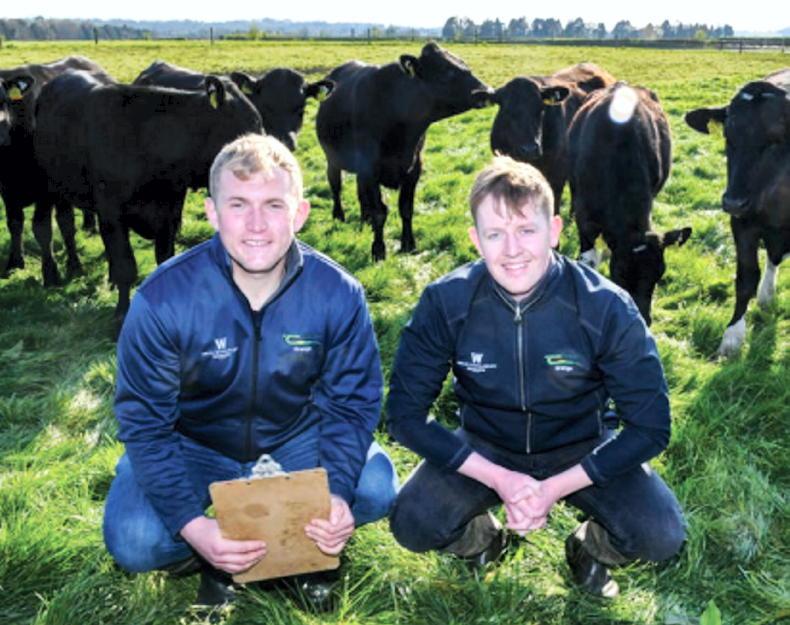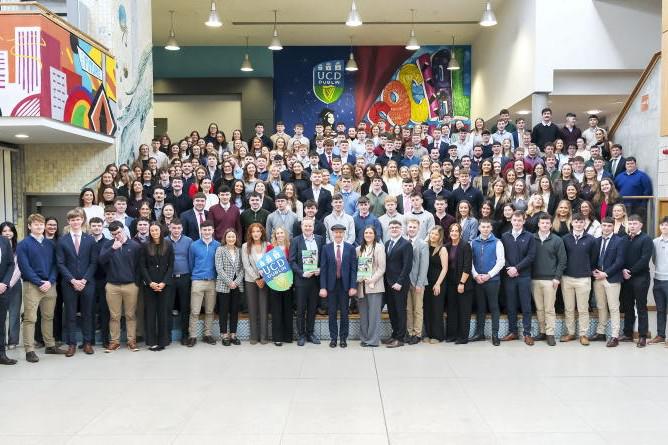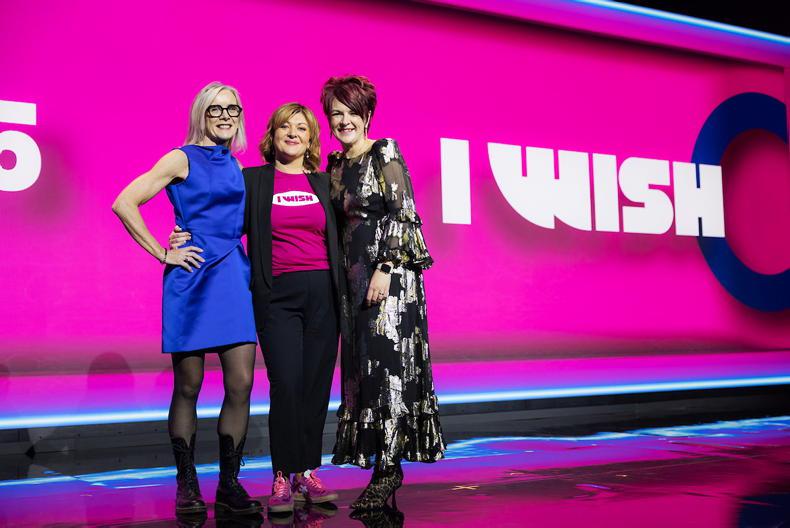Mark Kearney graduated from UCD in 2019 with a BAgrSc degree in agri environmental science. After completing his final year, based at the animal and grassland research and innovation centre in Grange, Mark has spent the last three years researching different elements of beef production systems in Ireland.
Innovation during school
Growing up on a beef, sheep and tillage farm on the outskirts of Athlone, Mark said that “you naturally have an interest,” It was however through a comprehensive transition year programme at Marist College Secondary School that he realised agriculture was where he wanted to focus his studies.
Taking part in the young scientist and young entrepreneur competitions, Mark and a team of his friends made jackets for sick calves.
“You see them everywhere now, but we were ahead of the time. The young scientist was a brilliant experience, we had great crack as well.” The team also received first prize in the West Meath young student enterprise Programme.
Mark credits his mother for developing his interest in his studies, and during his transition year she registered him in a three-day taster course in UCD for TY students. He was given a good overview of the agricultural courses and college life, and Mark says, “from transition year onwards I didn’t want to do anything else.”
Researching sustainable beef farming
Obtaining his funded PhD was difficult - it involved a written application, along with an interview.
“It’s so different from any interview I would have done before,” Mark says, “I felt a bit out of my depth at first. ”
Evaluating the sustainability of beef production in Ireland has been Mark’s focus over the last four years. “The whole-farm dairy beef system is a very topical farm enterprise at the moment. In Ireland, beef from the dairy herd is making up over 60% of our total beef outputs, surpassing the national suckler herd.” His work includes investigating the economics, of greenhouse gas emissions and the feed food competition* performance of dairy beef production systems in Ireland.
Mark is hoping to conclude his PhD this October. Part of the requirements of his contract is to publish four research papers. One has been published, two are submitted and waiting for approval and the final one is currently underway.
Main findings
Through carrying out a variety of research, Mark’s main findings have been; “In dairy beef systems, reducing the age of slaughter, increasing your stocking rate and the amount of grass in the animal’s diet improves your farm profitability and reduces your greenhouse gas emissions. If you can reduce the number of concentrates in the animal diet it improves their feed food competition performance.”
Advice for students
For anyone looking to go down the road of research, Mark has the following advice.
“You have to be passionate about your subject, no more than anything if you’re not interested in something it will become very difficult to figure it out. To have thick skin and a positive attitude, you need to be persistent. There are plenty of bumps and setbacks along the road, don’t be afraid to put yourself out there. Don’t think you are out of your depth you’re not expected to learn everything on day one, you learn and pick up skills throughout.”
* Feed-food competition is how much human edible food (i.e concentrates) an animal consumes verses how much human edible food (i.e beef meat) it produces.
Read more
Ongoing research to find a path to more female farm ownership
The benefits of a PhD in genetic research
Mark Kearney graduated from UCD in 2019 with a BAgrSc degree in agri environmental science. After completing his final year, based at the animal and grassland research and innovation centre in Grange, Mark has spent the last three years researching different elements of beef production systems in Ireland.
Innovation during school
Growing up on a beef, sheep and tillage farm on the outskirts of Athlone, Mark said that “you naturally have an interest,” It was however through a comprehensive transition year programme at Marist College Secondary School that he realised agriculture was where he wanted to focus his studies.
Taking part in the young scientist and young entrepreneur competitions, Mark and a team of his friends made jackets for sick calves.
“You see them everywhere now, but we were ahead of the time. The young scientist was a brilliant experience, we had great crack as well.” The team also received first prize in the West Meath young student enterprise Programme.
Mark credits his mother for developing his interest in his studies, and during his transition year she registered him in a three-day taster course in UCD for TY students. He was given a good overview of the agricultural courses and college life, and Mark says, “from transition year onwards I didn’t want to do anything else.”
Researching sustainable beef farming
Obtaining his funded PhD was difficult - it involved a written application, along with an interview.
“It’s so different from any interview I would have done before,” Mark says, “I felt a bit out of my depth at first. ”
Evaluating the sustainability of beef production in Ireland has been Mark’s focus over the last four years. “The whole-farm dairy beef system is a very topical farm enterprise at the moment. In Ireland, beef from the dairy herd is making up over 60% of our total beef outputs, surpassing the national suckler herd.” His work includes investigating the economics, of greenhouse gas emissions and the feed food competition* performance of dairy beef production systems in Ireland.
Mark is hoping to conclude his PhD this October. Part of the requirements of his contract is to publish four research papers. One has been published, two are submitted and waiting for approval and the final one is currently underway.
Main findings
Through carrying out a variety of research, Mark’s main findings have been; “In dairy beef systems, reducing the age of slaughter, increasing your stocking rate and the amount of grass in the animal’s diet improves your farm profitability and reduces your greenhouse gas emissions. If you can reduce the number of concentrates in the animal diet it improves their feed food competition performance.”
Advice for students
For anyone looking to go down the road of research, Mark has the following advice.
“You have to be passionate about your subject, no more than anything if you’re not interested in something it will become very difficult to figure it out. To have thick skin and a positive attitude, you need to be persistent. There are plenty of bumps and setbacks along the road, don’t be afraid to put yourself out there. Don’t think you are out of your depth you’re not expected to learn everything on day one, you learn and pick up skills throughout.”
* Feed-food competition is how much human edible food (i.e concentrates) an animal consumes verses how much human edible food (i.e beef meat) it produces.
Read more
Ongoing research to find a path to more female farm ownership
The benefits of a PhD in genetic research









SHARING OPTIONS